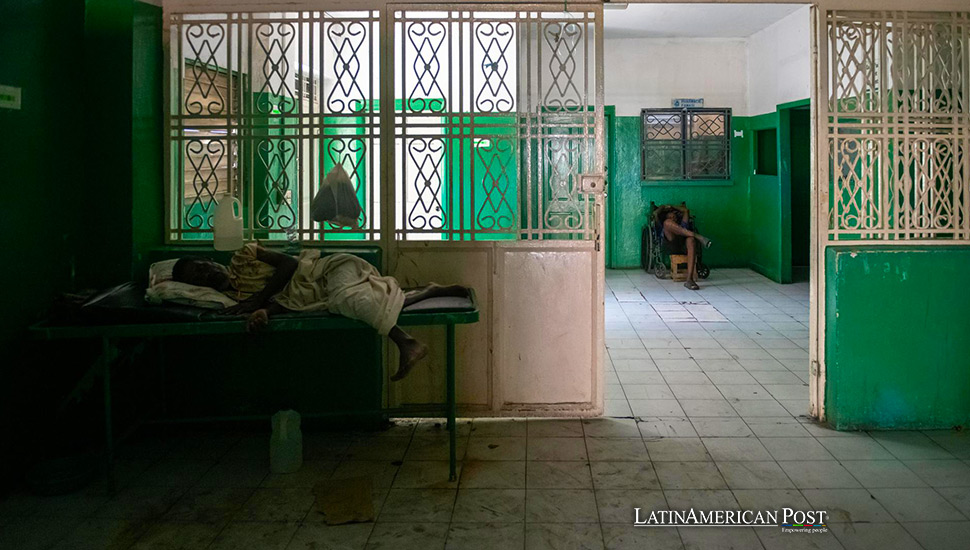Haiti’s Health Crisis: A Glimpse into Latin America’s Struggle

Amidst political and economic turmoil, Haiti’s healthcare system faces collapse, exacerbated by gang violence, reflecting a broader trend of health crises across Latin America.
Haiti’s healthcare system is teetering on the brink of collapse, exacerbated by a severe political and economic crisis and intensified by the terror spread by increasingly powerful armed gangs. Although acute in Haiti, this dire situation echoes a common theme across Latin America, where many nations grapple with similar healthcare challenges amid socio-political turmoil.
Before the latest outbreak of violence on February 29, Haiti’s healthcare system was already in crisis, a situation that has only worsened, with many medical facilities shutting down. In the first three months of the year, the violence in Haiti has led to 1,554 deaths and 826 injuries, per reports from the United Nations Office for Human Rights.
International organizations have raised alarms over the dire state of Haiti’s healthcare, with shortages of essential supplies, including water, risking infectious diseases like cholera, which has previously caused numerous deaths in the country. The difficulty in accessing various regions hampers efforts to distribute medical and sanitary supplies, potentially leading to future shortages, especially during a cholera outbreak, according to the Office for the Coordination of Humanitarian Affairs (OCHA).
Challenges in Access and Intervention
In Port-au-Prince, only three hospitals are operational, with armed gangs controlling 90% of the territory. The lack of access complicates health interventions, particularly in internally displaced persons (IDP) camps, where populations have swelled as people flee in search of safety. The International Organization for Migration (OIM) notes that displaced individuals often live in appalling conditions, crowded into small spaces with limited access to clean water and sanitation.
In less than two weeks, from March 8 to 20, over 33,000 people fled Port-au-Prince due to armed violence. The crisis has severely impacted children, with half of the country’s population, about 5.5 million people, needing humanitarian aid. The United Nations Children’s Fund (UNICEF) highlights the significant mental and physical health consequences for children in Haiti. UNICEF and its partner Apadeh conduct psychosocial activities in IDP camps to help children overcome the trauma of violence in their communities.
The escalating violence in parts of Haiti exacerbates the country’s nutritional crisis, with a 19% increase in severe acute malnutrition among children reported in 2024. Food security analysis reveals that 1.64 million Haitians face acute food insecurity at emergency levels, increasing the risk of malnutrition and wasting among children, especially in eight regions of the country.
The political situation deteriorated further after armed groups demanded the resignation of Prime Minister Ariel Henry, who is in the United States and has agreed to resign once a transitional presidential council is established.
The healthcare crisis in Haiti reflects broader regional issues in Latin America. For example, Venezuela has faced a significant healthcare crisis due to economic collapse and political conflict, with widespread shortages of medicines and medical supplies. In Brazil, the COVID-19 pandemic strained the public health system, highlighting its vulnerabilities with overwhelmed hospitals and a high death toll.
Countries like Nicaragua and Cuba also struggle with healthcare challenges amid political unrest and economic difficulties. These situations highlight the delicate balance between healthcare, political stability, and economic conditions in Latin America.
The commonalities among these countries illustrate a regional pattern of healthcare systems under stress due to various factors, including political instability, economic downturns, and social upheavals. These challenges underscore the need for a coordinated regional response to strengthen healthcare systems and address the underlying socio-political and financial issues.
Latin America’s Healthcare Challenges
In Haiti, the immediate priority is to stabilize the healthcare system by restoring access to medical facilities, ensuring the availability of essential supplies, and addressing the public health risks posed by infectious diseases like cholera. However, the long-term solution requires addressing the root causes of the political and economic crisis to create a stable environment where the healthcare system can function effectively.
The situation calls for a comprehensive approach that combines humanitarian aid, political dialogue, and economic support to rebuild Haiti’s healthcare system and address the broader regional challenges in Latin America. International organizations, regional bodies, and national governments must work together to provide the necessary resources and support to strengthen healthcare infrastructure, improve access to medical services, and ensure the population’s well-being.
Also read: Haiti’s Gang Violence Escalates, Search for New Leader Continues
The healthcare crisis in Haiti is a stark reminder of the broader challenges facing Latin America. The region must address the intertwined issues of healthcare, political stability, and economic development to prevent further deterioration of health systems and ensure the well-being of its populations. The international community has a crucial role in supporting these efforts and helping build a more stable and healthy future for Latin America.





